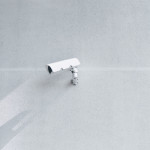Security Cameras: Analog Versus IP
Whether you are looking to upgrade your analog security cameras, or you are shopping for a new security system, it’s important to know the differences between analog and IP cameras to determine which type will best suit your needs. There are advantages and disadvantages to both types of cameras – be sure to review these before making a final decision.
Advantages of Analog Cameras
- Cost: If you have an existing analog system, it is obviously cheaper to stick with it. If you are on the market for security system, analog cameras are often significantly cheaper, and if you need to add more cameras, analog is likely the more cost-effective option.
- Availability: You will have an easier time finding vendors and installers for analog system since they have been around for years and are fairly simple to install.
- Simplicity: Speaking of, analog cameras offer an ease of use that make them very user friendly. The cameras send recordings to a DVR (digital video recorder), which then converts the analog to digital and stores it. And managing and using DVRs is simple as well.
- Technology: The technology used with analog has greatly improved over the years. High definition (HD) analog offers improved picture quality and resolution.
Disadvantages Of Analog Cameras
- Frame Rate & Image Quality: Analog cameras have a lower frame rate than IP cameras, so if you’re monitoring an area with lots of motion or need extreme detail, they are not ideal. Analog images are not as sharp and may appear grainy or blurry, and you cannot digitally zoom as you can with IP cameras. However, depending on the type of surveillance you need in a given area, high frame rate may not be a crucial factor.
- Less Coverage: Covering a certain amount of area may require more analog cameras than it would with IP cameras.
- More Cables: Analog cameras require a power cable and a DVR cable, whereas IP cameras only require one cable.
- No Encryption: The lack of encryption leaves you at risk for a hacker to potentially access your information or replace your signal with an outside one.
Advantages of IP Cameras
- Multiple Sensors: IP cameras can cover a larger area because they can contain as many as three to four cameras in one. All of these become one signal and are transferred through one cable to your system.
- Cost: Early on, the price difference between analog and IP cameras were drastic. Luckily, the prices have gone down and many IP cameras boast cost-effective prices. Also, because fewer IP cameras are required to the do same job as multiple analog cameras, your investment can be more beneficial.
- Installation: IP cameras only require one cable per camera and allow you to focus and zoom remotely. So long as your camera is installed at the right angle, you can easily control and manage your video feed from your workstation.
- Resolution: IP cameras have better image quality than analog cameras, and are available with different resolutions and aspect ratios to suit your needs.
- Intelligence & Analytics: IP cameras offer the ability to compress and store videos as well as provide a variety of different analytics. Some types of analytics you can program include motion or smoke detection, people counting, color tracking, and more.
- Security: IP video is encrypted and authenticated to ensure secure transmission.
- Equipment: IP camera systems require less equipment (analog requires more cables as well as an encoder and decoder).
- Open Platform: IP cameras are essentially universal and make it easy to add new features and functions to your system.
Disadvantages Of IP Cameras
- Cost Of Initial Set-Up: Upfront pricing may be more initially, but it can pay off in the long run. Once set up, it is must easier to tailor and scale your system as needed in the future.
- Storage: Since IP cameras produce higher resolution images, they generate larger files which require more storage space.
- Learning Curve: There is a user interface that end users may need to get accustomed to. While it is mostly intuitive, there is a certain level of technicality that needs to be learned.
From Analog To IP
If you are making the switch from analog to IP, here are some helpful tips.
- Bring in an independent consultant. You may have unrealistic expectations for your cameras that do not fit their capabilities, and an impartial party can help you see that.
- Replace as you can. If budget is not an issue, switching out your entire analog system for IP cameras at once is feasible. However, many of us have limited budgets, so replacing a few cameras at a time may be more practical. In doing so, you are creating a hybrid system, which supports both analog and IP cameras. Start by replacing the most important cameras to IP and create a plan for switching the rest of the analog cameras as they run their course.
- Find an installer/vendor that specializes in IP systems. It is beneficial to work with someone who understands the technology and networking of the system and is capable of installing your system properly and advising you on how to use it.
- Discuss what you really need. Just because IP cameras provide a wide range of capabilities does not mean you necessarily need all of them. Determine what you want your cameras to accomplish, what you really need, and how your budget can help you carry out your vision.
- Revisit your security plan. When making the switch, it is the ideal time for you to revise your security plans and reevaluate your approach.
What other transition tips can you think of? Share with us on Facebook, Twitter, LinkedIn, and Pinterest.
If you need help choosing IP security cameras, or would like to request a site survey or free quote, please call us at 888-203-6294. You can also browse our stock of quality security cameras online at SecurityCamExpert.com.
Should You Install Indoor Security Cameras?
Security cameras offer home and business owners peace of mind by allowing vigilance over properties. As a homeowner, installing an indoor security camera can help you check in on pets or simply watch over your home while you’re away. Although these benefits are appealing, there are a few things to consider before deciding on installing indoor security cameras.
Worries
It’s true that security cameras are meant to put your worries at ease, but at the same time, they can feed your anxiety. Because you can check in on things at any time, you may find yourself obsessively monitoring your feed.
To minimize this, set up a camera with motion detection so that it may alert you when there is activity. If you have pets, you can filter out their activity so that you are not inundated with false alarms.
Hackers
With internet-connected security cameras, you run the risk of hackers gaining access to your camera. This type of attack is much more common with cameras that have little to no built-in security. Luckily, there are ways to combat these risks. First, you should invest in well-know, higher quality security cameras that have better built-in security. Once you have chosen a camera, change any default logins and use strong, hard-to guess passwords. Also, be sure that your home Wi-Fi network is also highly protected.
Pets
As previously mentioned, indoor security cameras provide an easy way to keep an eye on your pets when you’re away. But when it comes to motion detection, they can easily trigger false alarms. Once you adjust your settings to accommodate pet activity, the security camera can be a great help. Whether you’re missing your pet while you’re away or if you’re working at home, security cameras allow you to see what they are up to.
Valuables
Of course, security cameras are meant to keep you safe from burglars. Their presence alone can help to deter criminal behavior. But in the case that it does not, it can provide useful footage that can be submitted as evidence.
Do you have security cameras installed at your home or business? How have they helped? Share your experiences with us on Facebook, Twitter, LinkedIn, and Pinterest.
For a great selection of quality IP and HD security cameras for your home or business, please visit SecurityCamExpert.com or call 888-203-6294 today!
Why Choose Wireless Security Systems?
Protecting your home from possible intruders is a high priority for most these days. When it comes to security systems, the debate between wired or wireless can be a tough decision. Both types offer advantages and disadvantages, with wired systems often seen as more reliable and wireless as more convenient. It really comes down to your own individual security needs and which type of system better suits these. Because wireless security camera systems are more advanced, they seem to be more appealing. Here we’ll review some of the important benefits of wireless security systems.
- Better Security
Wireless security systems offer better protection against intruders than wired security systems. Since wired systems use the telephone line or internet connection, if one or both of these are down, so is your security system. Wireless systems use more reliable cellular connections, and thus, the alarm will still be triggered via the dedicated cellular service or the batter powered backup system.
- Easy Installation
Most wireless systems are usually plug and play or DIY and can be set up in under 30 minutes, making installation of these systems and equipment easy and convenient. Wired systems require professional installation that takes longer to set up and test to ensure proper installation and functioning.
- Remote Surveillance
Wireless systems often provide other functions, such as controlling lights and locking and unlocking doors. These tasks can be managed remotely via an app installed on your smart phone or device.
- Mobile
Because they are easy to install, wireless security systems are also easy to uninstall and relocate. This is helpful when you are moving or even when you need to expand your system.
Although these seem like great advantages, they may not be right for you. As mentioned, it is important to evaluate your own security needs to better understand which type of system will work best for you. If you need help deciding, please feel free to contact us at 888-203-6294. You may request a free quote or schedule a site survey. Browse our comprehensive stock of affordable security solutions online at SecurityCamExpert.com and connect with us on Facebook, Google+, Twitter, LinkedIn and Pinterest.


